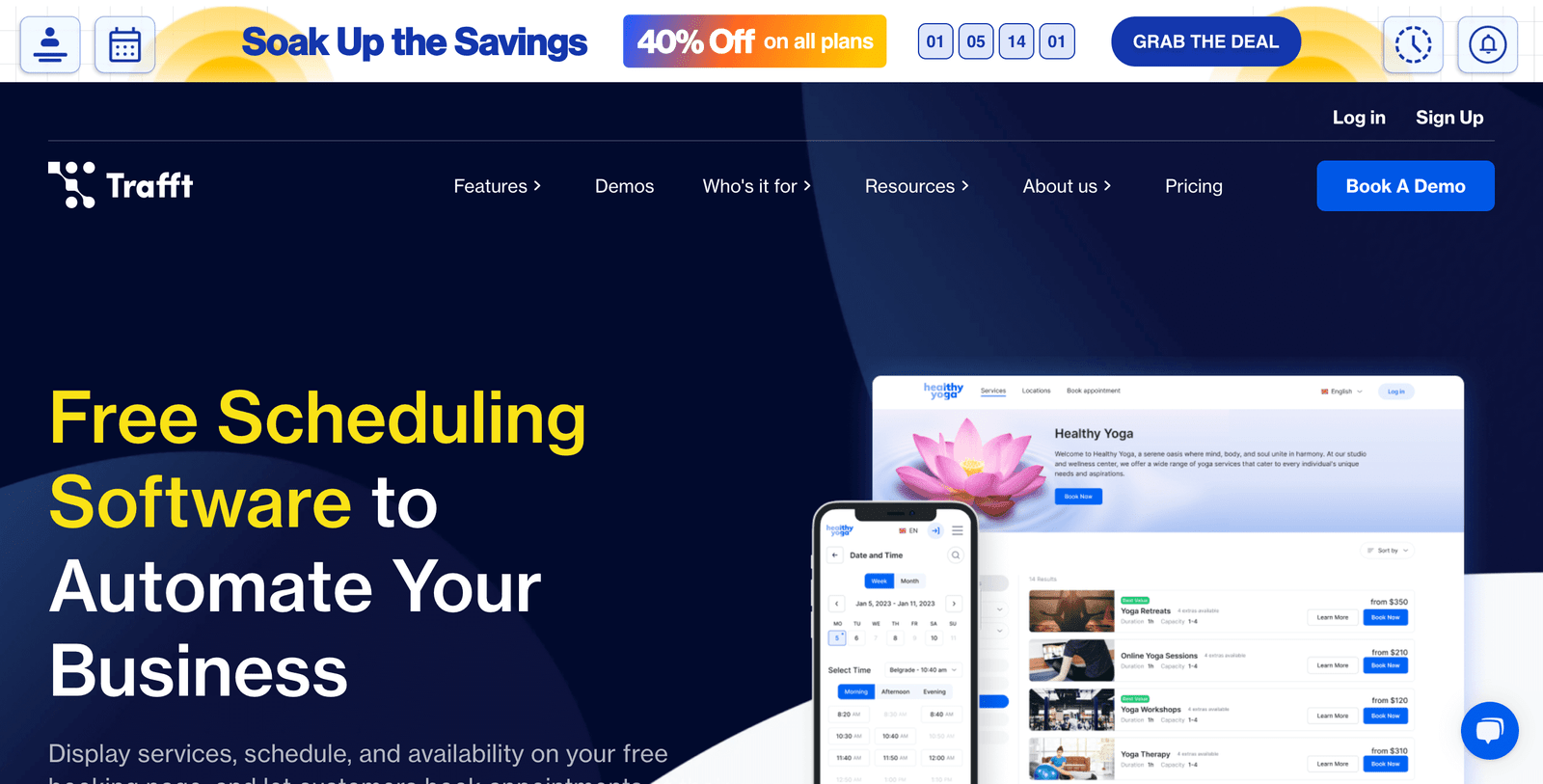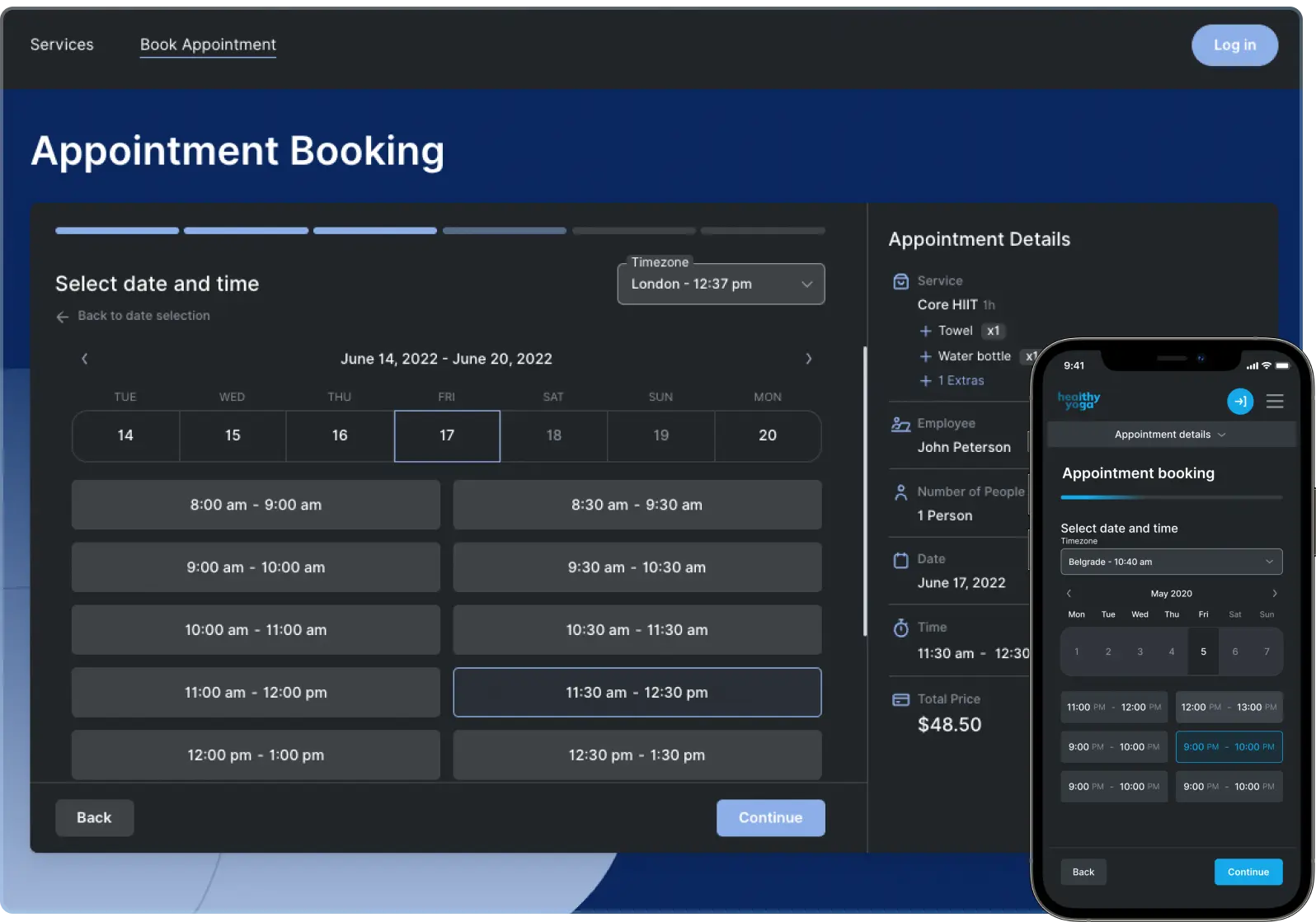Getting visitors to your law firm website is just the first step. The real challenge lies in converting those visitors into actual clients who retain your services and become loyal advocates. Whether you’re a solo practitioner or managing a multi-attorney firm, turning website traffic into revenue requires the right strategy and tools.
Here’s everything you need to know about converting legal website visitors into clients and growing your practice.
What Makes Legal Website Visitors Convert?
Your legal website visitors are looking for three key things: expertise, trust, and immediate access to counsel. They want to schedule consultations quickly, understand your legal services clearly, and feel confident about choosing your firm for their legal matters.
In practice, this means your website should:
- Provide 24/7 online consultation booking capabilities
- Display clear service information and fee structures
- Showcase client testimonials and attorney credentials
- Offer multiple ways to get in touch for urgent matters
- Make it easy to find office locations and hours
- Provide educational content about legal procedures and rights
- Show accepted payment methods and billing options
- Enable quick contact for legal emergencies
- Display case results and success stories (where appropriate)
The most successful law firms understand that modern clients expect the same level of digital convenience they get from other professional service providers.
How to Optimize Your Consultation Booking Process
The consultation booking process is where most law firm websites lose potential clients. A complicated or time-consuming scheduling system will send visitors straight to your competitors.
Implement 24/7 Online Consultation Scheduling
Your clients don’t just need legal help during business hours, so why should your booking system be limited to 9-to-5? Online consultation scheduling keeps your firm available for booking around the clock, allowing clients to schedule meetings when it’s convenient for them.

With tools like Trafft, you can provide an exceptional booking experience that works seamlessly across all devices. Potential clients can see your real-time availability and book consultations instantly without phone calls or waiting for office hours.
Simplify Your Consultation Request Form
Keep your initial consultation form focused and professional. Ask for only the essential information:
- Client name and contact information
- Type of legal matter (personal injury, family law, business litigation, etc.)
- Preferred consultation date and time
- Brief description of legal issue or case details
- Urgency level of the matter
You can collect detailed case information and conflict check details during the consultation confirmation process or when clients arrive for their appointment.
Offer Multiple Booking Channels
Different clients prefer different booking methods. Provide options through:
Website Integration: Embed your booking system directly on your website so visitors don’t need to leave your site to schedule consultations.
Social Media Links: Share your booking link on LinkedIn, Facebook, and other professional platforms where potential clients discover your firm.
QR Codes: Display QR codes in your office, on business cards, and in marketing materials that instantly open your booking page when scanned.
Google Integration: Use Google Reserve to reach potential clients by showcasing your legal services and availability directly on Google Search and Maps.
Essential Features for Law Firm Websites

Your legal website needs specific features that address the unique needs of clients seeking legal representation:
Trust-Building Elements
Display your bar admissions, legal certifications, and years of practice prominently. Include client testimonials and case results (following ethical guidelines). Show bar association memberships, awards, and continuing legal education commitments.
Practice Area Information
Create detailed pages for each area of law you practice, from estate planning to criminal defense. Include information about what clients can expect, typical case timelines, and fee structures when appropriate.
Emergency Contact Options
Legal emergencies don’t wait for business hours. Provide clear information about after-hours availability and emergency contact procedures for urgent legal matters.
Fee and Payment Information
Make it easy for clients to understand your fee structure and what payment options are available. Consider offering payment plans for larger cases or retainer arrangements.
Streamlining Consultation Scheduling

Modern scheduling software can dramatically improve your conversion rates by making the booking process effortless for potential clients.
Automated Confirmations and Reminders
Reduce no-shows and improve client satisfaction by automatically sending confirmation emails and SMS reminders before consultations. This professional touch shows you value clients’ time and helps them prepare for meetings with relevant documents.
Attorney Calendar Management
If you have multiple attorneys or legal staff, manage all calendars from one dashboard. This prevents double-bookings and ensures potential clients can easily find available consultations with their preferred attorney or practice area specialist.
Multi-Office Support
For law firms with multiple locations, use scheduling software that can manage all offices in one system. Clients can easily compare availability across locations and choose what works best for them.
Managing Client Communications Effectively
Effective communication builds relationships that convert visitors into long-term clients.
Client Relationship Management
Maintain detailed client records including case history, communication preferences, and important dates. Send case updates, legal deadline reminders, and firm newsletters to keep your practice top-of-mind.
Educational Content
Share legal insights, procedure explanations, and answers to common legal questions through blog posts, emails, and social media. Educated clients are more likely to seek preventive legal counsel and refer others to your firm.
Follow-Up Systems
Implement automated follow-up sequences for different client interactions:
- Welcome series for new clients
- Case status updates and next steps
- Legal deadline and court date reminders
- Follow-up on potential case evaluations
- Annual legal check-ins for ongoing clients
Building Trust with Potential Clients
Trust is crucial in legal service decisions. Build confidence through:
Professional Website Design
Your website is often the first impression potential clients have of your firm. Invest in a clean, professional design that reflects the quality of legal representation you provide.
Transparent Fee Information
When possible, provide clear information about consultation fees, retainer requirements, and billing practices. This transparency builds trust and helps clients make informed decisions about legal representation.
Client Reviews and Testimonials
Encourage satisfied clients to leave reviews on Google, Avvo, and other legal directories (following ethical guidelines). Display positive testimonials prominently on your website while respecting client confidentiality.
Attorney Introductions
Include professional photos and detailed bios of your legal team, including education, bar admissions, and areas of expertise. Clients want to know who will be handling their legal matters and feel confident in their attorney’s qualifications.
Measuring and Improving Conversion Rates
Track these key metrics to understand and improve your website’s performance:
- Conversion Rate: Percentage of visitors who schedule consultations
- Consultation Show Rate: Percentage of scheduled clients who actually attend
- Source Analysis: Which marketing channels bring the highest-converting visitors
- Page Performance: Which practice area pages keep visitors engaged longest
- Booking Abandonment: Where in the scheduling process do people drop off
- Client Retention: Percentage of consultations that result in retained clients
Use tools like Google Analytics to monitor website performance and consultation scheduling analytics to track booking patterns.
Regular analysis helps you identify what’s working and what needs improvement in your conversion strategy.
Getting Started with Better Conversions
Converting law firm website visitors into clients requires the right combination of user-friendly technology, clear communication, and professional legal service. Start by implementing online consultation scheduling that works 24/7, streamline your booking process, and focus on building trust through transparency and excellent client communication.
The law firms that thrive in today’s digital world are those that make it incredibly easy for clients to choose them, schedule consultations, and receive legal representation. By optimizing each step of the client journey from initial website visit to ongoing legal counsel, you’ll see more conversions and build a stronger, more profitable practice.
Ready to improve your law firm’s conversion rates? Consider implementing comprehensive scheduling software like Trafft that handles online bookings, client communications, and practice management all in one platform. With the right tools and strategy, you can turn more website visitors into loyal clients who recommend your firm to others.

